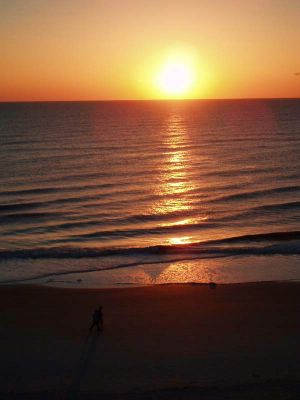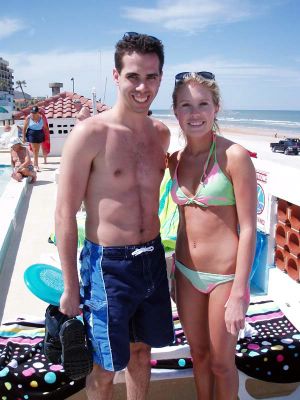Last part!
Pictures to along with this travelogue can be found here:
Lviv Pictures
***
I awoke the next morning to see Lviv. As in, actual Lviv, the Lviv I had come to see. Not Soviet apartment buildings, not some pseudo-castle in another town, but the 700 year-old city famous all over Ukraine.
When you go to Lviv, you get seven centuries of history standing before you. It was a city relatively untouched by the destruction of World War II or the Soviet cultural annihilation that followed. Gothic, Renaissance, baroque, rococo and neoclassical buildings all still stand, hip to hip. A Gothic church sits surrounded by medieval defensive walls, which are in turn ten feet from neoclassical apartments set flush against a Renaissance university building. The result was harmony, for somehow it all fit. I often found myself just turning in a slow circle, marveling how a timeline of construction was laid before me, existing in perfect, beautiful, aging grandeur.
That aging is also part of the appeal of Lviv. Ukraine has an underdeveloped tourist industry, and few non-Ukrainians come to see these buildings. No money means little in the way of upkeep, and because the buildings sit in crumbling decay, you can feel the age. It's not like in, say, Paris or London where everything is a thousand years old but has been restored in the past 50 years. I have a weird mindset towards restoration. I realize it makes the buildings look as they once were, but somehow I then feel the authenticity has been robbed. Someone can point to a building in Paris and tell me "that building is 500 years old", but it's hard to believe it because it was refurbished in 1960. Somehow, there is beauty to me in decay, a splendor in entropy. Somehow it makes it things seem real. Lviv felt real.
***
We walked around the center of the city, along its winding, cobblestone streets. We came upon a 250 year-old Dominican Monastery with a huge green dome. In the courtyard was a statue of a man with a blacksmith's apron, a book in one hand and the other outstretched. Underneath him was a book market, books being sold out of cardboard boxes. There were many mementos from the German occupation during World War II being sold, including post cards in German sent to Lviv. Many bore stamps with photos of Hitler on them.
We checked out the arsenal museum, which included several hundred years of weapons. They had swords nearly five and a half feet long, nearly as tall as me, which I couldn't even imagine wielding.
A 300 year-old Bernadine monastery with towering stained glass windows sat nearby, enclosed within far-older medieval walls with arrow slits. Surrounding the walls was a moat. The fact that I could just round a corner and come upon a place twice as old as my country, where people used to defend themselves against attacking armies, a place holding a church on the inside, facing an electronics store on the outside… Well, it was just amazing.
I marveled at the Ukrainian opera house. I ate a hot dog, the first since America, but done in Ukrainian style: loaded with carrots, cabbage, beets, corn, chives and mayonnaise. I walked along a parks, the trees dead in winter, old men huddled around dominos, the playing area a piece of cardboard laid out on a park bench.
The hospitality in Lviv was amazing. We were trying to find Castle Hill, which held the foundations of Lviv's original defensive castle. Susannah and I asked a woman for directions, producing a map and asking her to point. The woman instead walked us, six blocks out of her way, to a bus stop and then told us which one to get on and where to get off. On board, we asked an older gentleman for confirmation of the stop. The gentleman talked to a lady beside him, and that lady then got us off at the right stop and walked us, ten blocks, up to near the hill.
Another lady stopped me while I was taking a photograph of a square with a statue, and actually pointed to where a better angle would be to get the whole square. Two security guards at a beautiful neo-classical university building tried to stop our entrance, thinking we were university students trying to get in on a Sunday. When we told them we were simply there to look, they unlocked the building, let us in and showed us around, pointing at new remodeling, identifying statues and begging us to take pictures.
***
We met up with Fiona, another volunteer who lives near Lviv. Together, the three of us went to the Apteka (Pharmacy) museum, to see what a 300 year old pharmacy looks like. Built in 1735, it has been dispensing drugs longer than America has been a country. And it was still dispensing drugs. To get to the museum you had to go to the back room behind the counter. Price: $0.35.
There were cabinets filled with jars with Latin labels. I imagined they said things like "eye of newt". We went down a set of stairs to the basement, where bad mannequins in weird clothes were set up. There, in the gloom, amongst the casks filled with who knows what, you could imagine arcane rituals going on, blood-letting and leach-laying, or secret meetings about overthrowing the Poles.
After a very good lunch at a local Pizzeria Fiona knew about (Ukrainians love pizza, although aren't very good at making it), we went to the Armenian Cathedral, which was recommended to me by Yulia when she heard I was coming here.
Can I say amazing? This cathedral was completed in 1368, over a hundred years before Columbus even set sail. And it looked to have been falling into disrepair since, but that made it the more amazing. In the locked-in courtyard was a wooden carving of Christ on the cross, the wood slowly rotting away. Inside, past broken tablets with Latin inscriptions, was a huge vestibule, with only a few pews (most people stand during Orthodox worship). Faded murals were on the walls. On one, almost all the paint had flaked away or faded beyond recognition except for, symbolically, a picture of Christ's face in pain. One of the better preserved ones showed priests bearing the body of a cardinal to his final resting place. White outlines showed the ghosts of other worshippers gone to the grave, and one of the priest's head was turned towards them, as if he could feel their presence or see them.
While we were looking at the walls, footsteps echoing in the cold chamber, the only light coming from high windows and burning candles, a group of people had arrived. There were nine of them. I wondered if they were Armenian. They faced the cross, and then three of them started singing. I had never heard music like it. Two would sing just one note, in tune with each other, and then the other would begin singing a series of slowly rising and falling notes. There were no words, just their voices, their song visible in the condensed breath coming out their mouths into the cold air. We stood and watched, listened, entranced as they took turns singing those rising and falling notes while the others held just their notes, the music echoing and reverberating in the room. Soon, more of the people joined in song until they were all singing that same, haunted, melody-less song, their breaths streaming out of them mouth in gray clouds. It was like visible music.
Fiona, Susannah and I looked at each other and knew, right then, that this was made it worth coming to Lviv. For Susannah and I, the nightmare of the previous day, facing a train ride that night, our little trip almost turned out to be more trouble than it was worth.
But then, right then, we knew why we had come.
***
Susannah did manage to get a ticket back for that night, on a different train than I had a ticket for. They had an extra space on the train, so I just threw away mine and bought one on hers. Platzkart tickets were only 30 hrivna (less than $6), so I could afford it. Actually, finally tapping into my American savings (there only for travel, mind you) I could afford a lot. To finish out our Lviv vacation, Susannah and I ate a big dinner, and I tried some gambling, playing roulette at a Lviv casino. Of course, I won back exactly what I lost and left what I came in with.
We got on a train with no chickens or screaming children, but I did finally find out why the lock the doors half an hour to and from a station. When I finally worked up the bravery to use the train bathroom and finally figured out how to flush the toilet, I watched everything I had just expelled go out a hole right onto the tracks.
But that's Ukraine for you. And apparently, the vacation was over.
 I took my regulator out for this shot, so appreciate it! Note the pink mask that still has some water in it
I took my regulator out for this shot, so appreciate it! Note the pink mask that still has some water in it Some fish. These shots don't really do the reef justice. You can notice the difference between this shot from a disposable camera I bought and the next shot from another diver's professional camera
Some fish. These shots don't really do the reef justice. You can notice the difference between this shot from a disposable camera I bought and the next shot from another diver's professional camera 













